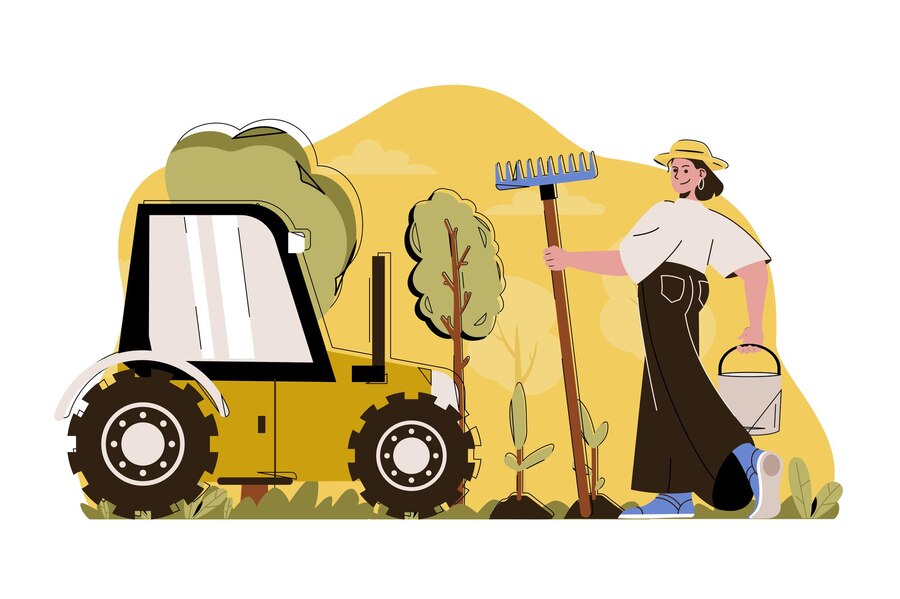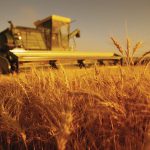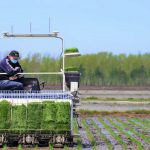Farming is a crucial industry that has been evolving steadily over the years. With the world population growing at an unprecedented rate, it has become necessary to revolutionize farming and adopt advanced techniques and technology to sustain its growth and meet the growing demand for food. Advanced farming techniques, such as precision farming, and cutting-edge technologies like Farm Management software and AI, rapidly transform the farming industry and offer new opportunities for farmers to improve yields while reducing costs. This article explores the latest advancements in advanced farming techniques and technology and how they are revolutionizing the farming industry to meet the world’s ever-increasing demand for food.
The Importance of Advancements in Farming Techniques
Agriculture has come a long way since the days of manual labor and traditional farming methods. Thanks to technological advancements and innovation, farmers can now produce crops in ways that were once thought impossible. These advancements have played a crucial role in feeding our growing global population sustainably.
If you are a farmer looking to take your farming techniques to the next level, there are several advanced methods and tools at your disposal. From precision agriculture to vertical farming, these innovative techniques are revolutionizing the way we grow crops and raise livestock.

Precision agriculture, for instance, uses data and technology to optimize crop production and reduce waste. By monitoring and analyzing soil moisture, crop growth, and weather patterns, farmers can make informed decisions about seeding rates, fertilizer application, and irrigation schedules.
Vertical farming, on the other hand, involves growing crops in vertical layers using technology such as hydroponics and aeroponics. This method enables farmers to produce a larger yield of crops in a smaller space while using fewer resources such as water and pesticides.
Adopting advanced farming techniques has many benefits. Not only do they help to increase yields and maximize profits, but they also enable farmers to use resources more efficiently and sustainably. By embracing these innovative methods, we can ensure a healthy and prosperous future for our agriculture industry.
Precision Farming: Automating Farming Practices with Technology
Precision farming, or precision agriculture, is a revolutionary farming technique that utilizes cutting-edge technologies to optimize farming practices and improve crop yields. With the help of advanced data analytics and automation tools, precision farming enables farmers to make informed decisions about seed selection, fertilization, irrigation, and pest control.
The benefits of precision farming are manifold. By minimizing waste and maximizing efficiency, farmers can save time, money, and resources and increase their overall profitability. Additionally, precision farming can help reduce the environmental impact of farming, such as soil erosion, water pollution, and greenhouse gas emissions.
To get started with precision farming, farmers should first assess their needs and capabilities and determine which technologies and tools are best suited for their specific operation. Some popular tools used in precision farming include sensors, drones, GPS mapping, and data management systems. Farmers can also work with specialized companies that offer precision farming services, such as soil analysis, mapping, and recommendations for crop management.
Overall, precision farming is a game-changing technology that is revolutionizing the farming industry. By embracing these advanced methods, farmers can improve their yields, reduce their costs, and contribute to a more sustainable future for our planet.
Adopting Sustainable Agricultural Methods for Better Yield
Sustainability is the buzzword today for the agricultural industry. With the increasing demand for food and the rising scarcity of resources, it is imperative for farmers to adopt sustainable farming methods to ensure better yields while safeguarding the environment and natural resources.
Revolutionizing traditional farming techniques can be challenging, but incorporating advanced sustainable practices can help farmers increase productivity while reducing their environmental impact. Sustainable farming techniques like crop rotation, natural pest control, water conservation, and organic fertilization can help farmers maintain the health of their soil, reduce energy and water usage, and curb harmful greenhouse gas emissions.
By adopting sustainable agriculture methods, farmers can not only improve crop yields but also attract environmentally conscious consumers who prefer to buy products that are produced in an eco-friendly way. This approach can help farmers increase profitability while contributing to the planet’s overall health.
In conclusion, the adoption of sustainable farming methods should be considered a necessity rather than a choice in today’s world. Farmers need to take full advantage of innovative solutions that can help them reduce environmental impact while safeguarding resources and sustaining crop yields. These efforts will ultimately result in better yields, improved profitability, a better environment, and a healthier planet for generations to come.
Crop Rotation and Soil Health: Key to Long-term Sustainability
Farming has come a long way from relying solely on traditional techniques to achieve high yields. Advanced methods have been developed to improve the quality of crops and ensure long-term sustainability. Two key methods that have revolutionized farming are crop rotation and soil health.
Crop rotation, the practice of alternating crops on the same land, has numerous benefits. It helps break the cycle of pests and diseases that can build up in the soil over time, prevents nutrient depletion, and improves soil structure. By rotating crops, farmers can maintain healthy soil and increase yields in the long run.
Soil health is another critical aspect of sustainable farming. Soil is a living ecosystem that contains microorganisms, fungi, and worms, among others. It plays a vital role in plant growth and nutrient absorption. Farmers can improve soil health by using organic fertilizers and reducing tillage. Healthy soil leads to healthy crops and is vital for long-term sustainability.
In conclusion, combining crop rotation and soil health practices can revolutionize farming techniques and lead to long-term sustainability. By implementing these advanced methods, farmers can enhance the quality of their crops, protect the environment, and ensure that their farms remain productive for generations to come.
Data Analytics Reports and Farm Management Software
These days, farmers have access to advanced technologies such as data analytics reports and farm management software that can help them optimize their operations and achieve greater efficiency and profitability. By adopting these cutting-edge techniques, farmers can revolutionize their farming and stay ahead of the competition.
One of the key benefits of data analytics reports is that they allow farmers to analyze vast amounts of data about their crops and livestock. This data can be used to identify patterns, trends, and potential risks, which in turn can help farmers make better decisions about crop rotation, fertilization, pest control, and more.
Farm management software is another powerful tool that can help farmers streamline their operations by automating tasks such as record-keeping, inventory management, and scheduling. This software can also provide real-time alerts and notifications, enabling farmers to respond quickly to issues before they become more serious.
In conclusion, by leveraging data analytics reports and farm management software like BadoomApp, farmers can achieve greater efficiency, productivity, and profitability. So if you’re looking to take your farming operations to the next level, be sure to explore these advanced techniques.

The Future of Modern Farming – Vertical Farming
Farming techniques have come a long way in recent years, and with the advent of modern technology and sustainable practices, we are seeing the emergence of new and innovative farming methods. Among them, vertical farming has gained significant attention due to its potential to revolutionize the agriculture industry.
Vertical farming is a highly advanced farming technique that involves soil-less cultivation of crops in a controlled environment, usually in a multi-story building or a tower-shaped structure. This technique has the potential to increase crop yield, reduce water usage, avoid soil depletion, and minimize the use of pesticides. Moreover, it allows for the production of fresh, organic produce even in urban areas where space is limited.
Some of the technologies used in vertical farming include hydroponics, aeroponics, and aquaponics, which rely on nutrient-rich solutions, misting systems, and fish waste, respectively, to grow crops. Additionally, innovative lighting systems and climate control mechanisms are used to simulate ideal growing conditions for crops.
To start implementing vertical farming in your operations, you will need to invest in specialized equipment, including LED lighting systems, climate control technology, and irrigation systems. You will also need to have a deep understanding of plant biology, as well as the advanced technology involved in vertical farming.
Overall, vertical farming is a highly advanced and innovative farming technique that is poised to shape the future of modern agriculture. By investing in this method, farmers can increase their productivity and profitability while also contributing to sustainability efforts by minimizing their environmental impact.




